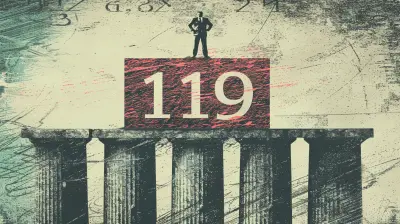Understanding the Concept of Opportunity Cost in Business Decisions
5 June 2025
Let’s cut right to it—you’ve heard the term “opportunity cost” tossed around like confetti at a finance party, but what does it actually mean? And more importantly, why should you care if you're a business owner, entrepreneur, or just someone trying to make smarter decisions?
Well, buckle up, buttercup. We’re diving headfirst into this concept with a lot of laughs, a few analogies, and just enough brain food to make your next business decision kinda genius.
What the Heck Is Opportunity Cost Anyway?
Opportunity cost is one of those fancy-sounding economics terms that’s really just common sense dressed in a three-piece suit.In plain English? It’s the value of what you’re giving up when you choose one thing over another.
Imagine you’ve got $10 and you’re standing at a food truck festival. You can buy either a juicy burger from Bob's Burgers or a gourmet taco from Tina's Tacos. You choose the burger. That taco? That’s your opportunity cost. The taste, the spice, the guac... gone. Never to be tasted, all because you picked the burger.
In business, though, you’re swapping tacos for decisions like:
- Investing in Product A vs. Product B
- Hiring a marketing manager vs. buying new software
- Expanding into a new region vs. doubling down on your current market
It’s all about trade-offs.
The Invisible Price Tag on Every Decision
Here’s the kicker: Every choice you make has a hidden price tag. Not just the dollar cost, but the value of what you're sacrificing instead.Think of opportunity cost like an annoying ghost that follows you around, whispering “Hey, what if you’d done that instead?” But it’s not here to haunt you—it’s here to help you make better calls.
You can’t avoid opportunity cost. It’s like gravity. But you can use it to your advantage. 
Why Opportunity Cost Matters in Biz Decisions
If you're not thinking about opportunity cost, you're basically driving blindfolded with a GPS that only gives you one option: “Go straight.” Sure, that’s one way to live dangerously, but probably not the smartest.Let’s say your business has $100,000 to invest. You can:
1. Upgrade your old warehouse
2. Launch a new product line
3. Pay off debt
Each choice could bring returns, but only one can win. The opportunity costs are the results you won’t get from the two paths not taken.
Not considering opportunity cost is like saying, "It’s fine, I didn’t need to make money that badly." Spoiler alert: the competition isn’t skipping this step.
Real Talk: Opportunity Cost in Action
Let’s look at a tale of two entrepreneurs.🧔 Meet Budget Bob
Bob decides to put $20,000 into revamping his website. He gets a super sleek design, videos, animations—the whole shebang.But here’s the twist: Bob didn’t consider that he could’ve used that money to launch a paid ad campaign that might’ve pulled in 500 new customers.
His new site? Pretty. The flood of customers he could have had? Now that’s an opportunity cost.
👩🦰 Say Hi to Profitable Pam
Pam, on the other hand, looks at the same $20,000 and asks: “What’s the best bang for my buck?” After weighing a few options, she chooses a targeted social media campaign. It brings in $50,000 in new sales. Boom.Did she miss the chance to get a fancy new website? Yes. But was it worth it? Also yes.
Business Isn’t Just Dollars—It’s Decisions
Every “yes” means a “no” to something else. That’s the essence of opportunity cost.Here are some more everyday examples.
1. Hiring vs. Outsourcing
Should you hire someone full-time or bring in a freelancer? Hiring might give you long-term commitment, but outsourcing offers flexibility. Whichever path you take, you’re missing out on benefits of the other.2. Time as a Cost
Ever spent hours on admin tasks instead of focusing on growth strategies? Congrats, you just paid in time—the most expensive currency of all.Imagine this: You spend 10 hours doing your own bookkeeping. You saved $200. But what if you used that time to close a $2,000 deal? Your real cost? $1,800. Ouch.
3. Stocking One Product Over Another
Shelf space is real estate. If you stock Product A, you can’t stock Product B. If B sells better—you just missed out on extra revenue. Welcome to the world of inventory Tetris.Opportunity Cost and Risk: The Dynamic Duo
Opportunity cost doesn’t live in a vacuum. It’s the cousin of risk. One tells you what you miss out on, the other tells you what could go wrong.Smart businesses look at both sides.
For example, launching a new high-end product line could rake in profits—unless it tanks, and you've burned resources that could’ve gone to your existing bread-and-butter line.
Opportunity cost asks: “What are you saying no to?”
Risk asks: “What happens if this blows up in your face?”
Understanding both? That’s how business ninjas are made.
How to Calculate Opportunity Cost Like a Nerd (But In a Cool Way)
Okay, here’s a bit of math. But don’t run away! It’s simple, promise.Let’s say you have two options:
- Option A will earn you $10,000
- Option B will earn you $7,000
You pick B. Your opportunity cost is:
$10,000 - $7,000 = $3,000
That’s three grand walking out the door, waving goodbye.
The formula is:
> Opportunity Cost = Return on Best Foregone Option - Return on Chosen Option
Sounds fancy. Really means: “I chose pizza. I could’ve had sushi. Sushi was better. Dang it.”
Mental Shortcuts (Because You’re Busy)
Don’t worry—you don’t need to wear an economist’s hat all day. Here are some quick tricks to keep opportunity cost top-of-mind.💭 The 30-Second Trade-off Test
Ask yourself: “If I say yes to this, what am I saying no to?”Boom. Instant perspective.
📈 ROI Gut Check
Which option has the higher ROI (return on investment)? If you don’t know, find out. Data > Guesswork.⏳ Time Audit
Ask, “Is this the best use of my time right now?” Saying yes to busywork means saying no to growth.Opportunity Cost in Big Biz History (Yes, Even the Titans Mess Up)
Remember Kodak? They invented digital photography. Then they ignored it. Why? They didn’t want to sacrifice their film business. The opportunity cost of not switching was... extinction.Blockbuster? Same thing. Netflix offered them a partnership. Blockbuster passed. What did that cost them? Only their entire business model.
Moral of the story: Opportunity cost isn’t just some theory stuck in an econ textbook. It shapes the future—yours included.
Opportunity Cost in Your Personal Life (Yep, It’s Everywhere)
Let’s get a little personal here.- Dating one person means not dating others.
- Watching three hours of Netflix means not going to the gym (no judgment).
- Scrolling TikTok until 2 AM = Not sleeping = Zombie mode next day.
Whether it’s business or life, your choices are investments. Opportunity cost is the fine print on every one of them.
TL;DR: What You Need to Remember
- Opportunity cost = Value of the next best alternative you didn’t choose- It applies to time, money, people, and energy
- Not considering opportunity cost is like stepping on LEGO barefoot—painful, preventable, and could ruin your day
- You don’t need to overanalyze every choice—but you do need to stay aware
Final Thoughts (a.k.a. The Pep Talk)
Look, you’re not a robot. You can’t calculate every choice down to the decimal. But if you start thinking in terms of trade-offs, you’ll start making sharper, smarter decisions without even breaking a sweat.Opportunity cost isn’t here to make you paranoid. It’s here to give you an edge. So next time you're about to say yes to something—pause, breathe, and ask yourself, “What am I saying no to?”
That question alone might just save your business, your wallet, and maybe even your sanity.
all images in this post were generated using AI tools
Category:
Business FinanceAuthor:

Yasmin McGee
Discussion
rate this article
2 comments
Thornefield Graham
Opportunity cost is not just a concept; it's a powerful lens through which we make strategic business decisions. By recognizing what we're sacrificing for every choice, we empower ourselves to seize the most valuable opportunities. Embrace this principle, and transform challenges into avenues for growth and innovation!
November 25, 2025 at 5:39 AM

Yasmin McGee
Thank you for sharing this insightful perspective! Embracing opportunity cost truly empowers businesses to make more informed, strategic decisions.
Joy Thomas
Great read! Understanding opportunity cost is crucial for making informed business decisions. This article really simplifies the concept, making it accessible for everyone. Thanks for sharing such valuable insights!
June 28, 2025 at 4:37 AM

Yasmin McGee
Thank you for your kind words! I'm glad you found the article helpful in understanding opportunity cost. Your feedback means a lot!


